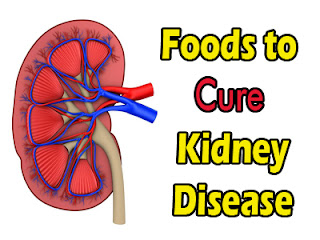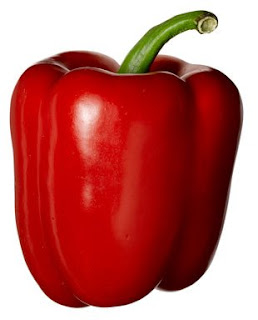
Kidneys function by removing wastes, and they regulate salt and mineral balance as well as blood pressure .
When kidneys become damaged, wastes build up and abnormal oxidation begins, which can cause shortness of breath, swelling, urination, cardiovascular problems and others.
When kidneys become damaged, wastes build up and abnormal oxidation begins, which can cause shortness of breath, swelling, urination, cardiovascular problems and others.
When left untreated, kidney failure may set in, which can lead to heart disease and even fatality. While there are many treatments for kidney disease, a renal diet full of antioxidant- and vitamin-rich foods can do wonders for kidney function.
Red Bell Peppers
Red bell peppers are a tasty food that also contain powerful cancer fighting agents. They contain plenty of vitamin C and A, B6, folic acid and the powerful antioxidant lycopene and are low in potassium which is good for a kidney diet. Bell peppers can be cooked, but for a kidney regenerating diet they are best eaten raw to get the full amount of vitamins they carry, as well as their high fiber content.
Onions
A diet rich with onions, with all varieties including red, white, brown and vidalia among others, will help battle oxidation by providing generous amounts of phosphorus and plenty of flavonoids including quercetin, which fight cancer and helps reduce risks of heart disease. Onions get their strong smell from their high sulfur compound content and help with protein, fat and carbohydrate metabolism with the mineral chromium.
Red Grapes
Another powerful food for a kidney diet would be red grapes. Red grapes get their color from the many flavanoids they contain, which help in the reduction of blood clots and prevent oxidation and heart and kidney disease. A flavanoid found in red grapes, resveratol, increases blood flow and relaxes muscle cells by encouraging nitric oxide production. Red grapes can be eaten raw in juice form as well as wine in moderation.
Cabbage
Cabbage, especially when consumed raw, is high in phytochemicals which combat free radicals and stop them before they do harm. These phytochemicals also help supplement cardiovascular health and fight cancer. Cabbage is a cruciferous plant rich with vitamins K, B6 and C as well as folic acid and fiber. Sulforaphane is found in cruciferous vegetables including cabbage, also fights many types of cancer growths such as lung, breast, bladder, prostate and ovarian cancers.








